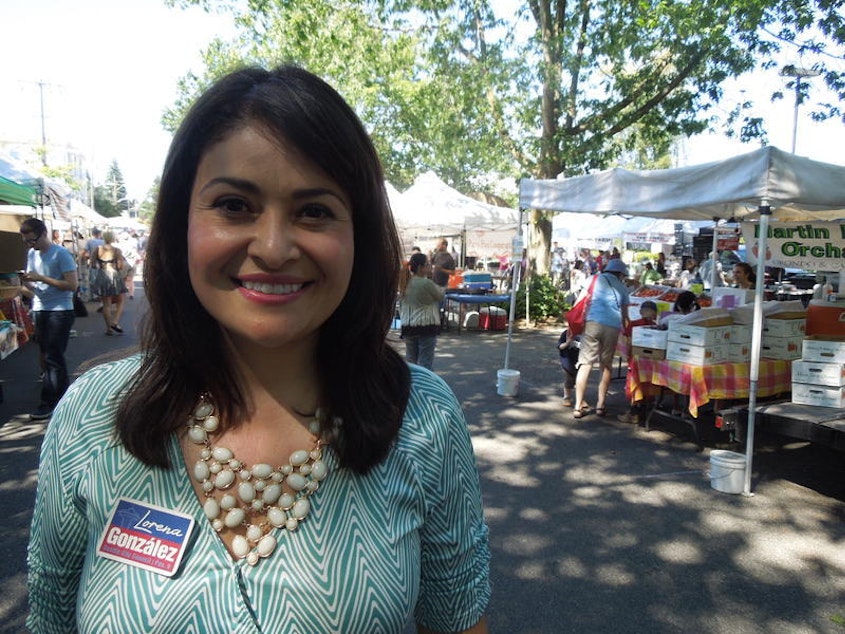Seattle bans 'foreign-influenced' corporate election spending

The Seattle City Council unanimously passed a new law Monday that bans campaign spending by “foreign-influenced” corporations, putting the city at the forefront of a national legal effort to take on big corporate money in politics.
Corporate spending on elections has skyrocketed around the country in the last decade. The trend peaked in Seattle last fall when Amazon spent $1.5 million to try and influence council races.
Council president Lorena Gonzalez sponsored the new law, which defines “foreign-influence” based on stock ownership. It's an attempt to build on current election rules that bar foreign nationals from spending in U.S. elections.
"Foreign interests can easily diverge from U.S. interests," Councilmember Lisa Herbold said.
Mike Sozan with the Center for American Progress, which backs the Seattle law, agrees with that sentiment. He argues foreign shareholders do have influence over corporate decision-making.
“Once the CEOs become attuned to what foreign investors want, that’s what’s problematic because foreign interests diverge from U.S. interests,” Sozan said.
Sponsored
Under Seattle's new rule, any company with a single shareholder from another country that has a 1% stake, or 5% for multiple shareholders from multiple places, would not be allowed to participate.
Seattle is the second city to ban “foreign influenced” corporations from participating. St. Petersburg, Florida did it first, back in 2017, after lobbying by a group called Free Speech for People, which also worked with Seattle on its new law.
Councilmember Darden Rice was behind the effort in St. Petersburg. She worried that a flood of corporate cash would start to hit elections in her city and wanted to prevent it.
Advocates blame the U.S. Supreme Court’s 2010 decision in Citizens United v. Federal Election Commission. In practice, that ruling allowed unlimited corporate spending on elections to Political Action Committees or PACs.
Two St. Peterburg council members opposed the new law, including Ed Montanari, who told KUOW it's "unconstitutional." St. Peterburg's city attorney also advised the council to vote against it.
Sponsored
So far nobody has challenged the St. Peterburg law in court.
But Free Speech for People and activists in Washington state are hoping that the new Seattle law will be challenged, and that it could one day go all the way to the Supreme Court.
Gonzalez said she expects a legal battle.
"Any time we challenge the status quo and power there will be individuals who react negatively to that, so we want to be in the best position to defend our actions," she said.
Mayor Jenny Durkan has said she will sign the new law.
Sponsored
“While this bill will likely have legal challenges," said Durkan Spokesperson Kamaria Hightower. "The mayor supports the Clean Campaigns Act and agrees that we need to take all steps possible to ensure transparency in our elections.”
Sponsored
On Monday the council also passed another election law aimed at increasing transparency in political advertising.




